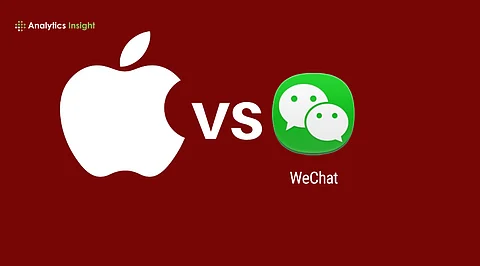

Apple vs. WeChat: Super-app showdown! Explore their ecosystems & strategies in the platform wars. The battle for digital dominance is heating up, with each side vying for user loyalty. As the competition intensifies, the future of mobile platforms hangs in the balance.
Apple and WeChat are tech titans, each espousing a super-app future. This piece looks at their battle in the platform wars through differences in strategy, successes, and influence in the market. Straightforward observations divulge why the confrontation dictates the future of digital platforms.
Super-apps are where several services are consolidated onto one platform. WeChat, which is Chinese, has messaging, payments, shopping, and other features under a single app. Apple, using its iOS ecosystem, puts apps, payments, and services such as Apple Music under its control in an integrated manner. Both want to retain users on their platforms but in very different ways, giving rise to an intense rivalry.
WeChat thrives as an all-in-one app, especially in China. Users chat, pay bills, hail taxis, and shop without leaving the app. Mini-programs, applets of WeChat, offer endless functions without separate downloads. Such versatility serves different needs, making WeChat a daily necessity for millions. Its open nature encourages developers to build new features, expanding its reach.
Apple goes a different way, prioritizing a highly curated experience. The iOS platform combines services such as Apple Pay, iCloud, and the App Store within strict guidelines. Each app goes through a rigorous examination, keeping quality and security intact.
This oversight provides a seamless, premium experience but limits flexibility compared to WeChat. Apple's ecosystem is best for users who are invested in its hardware and software.
WeChat's interface gets much done but may feel cumbersome. Its strength lies in access, especially in multicultural tech-literate markets. One platform meets most requirements, reducing utilization of a number of platforms.
Apple, however, has a smooth, simple-to-use interface. Features like Siri and syncing across devices promote ease of use but require Apple hardware, thus adding cost to consumers.
Privacy shapes both platforms' identities. Apple focuses on protecting user information, with technology such as App Tracking Transparency. Robust controls restrict data exchanges, which meet the privacy-loving markets. Under China's policy, WeChat takes in greater data for its services.
WeChat reigns supreme in China, where it hosts more than a billion consumers. Its influence spreads to Asia, but regulatory and cultural issues hinder international growth. Apple's iOS platform touches every corner of the world with solid bases in North America and Europe.
Universal presence of the App Store grants Apple a wider presence, although WeChat's stronghold in China has no equal. Each platform reflects the cultural interests of its local market.
Mini-programs in WeChat appeal to developers through having low thresholds. Small businesses take services online quickly, utilizing WeChat's vast user base. Apple's App Store, while profitable, offers high standards and fees that might deter smaller developers.
Apple's global market has greater potential for revenue for successful apps, but it is less attractive for smaller creators. Both platforms encourage innovation but suit differing creator demands.
The wars for platforms expose some special challenges. WeChat's model cannot fit outside of China because of data privacy and alternative apps such as WhatsApp. Apple is under stress to open its ecosystem up at the same time it's receiving antitrust examination.
The super-app war is a demonstration of evolving trends. WeChat can extend mini-programs to new grounds, refining its global strategy. Apple can expand service integration, such as Apple Pay, to compete with WeChat's convenience.
AI and augmented reality technology can further blur the lines between platforms. The victor will depend on responding to user requirements while navigating regulatory environments.
Apple and WeChat remake digital platforms by offering competing super-app visions. WeChat's all-in-one versatility clashes with Apple's carefully curated, high-end ecosystem. Privacy, accessibility, and market reach drive their competition, each dominating in various areas.
This article sheds light on their strategies and challenges. As platform wars intensify, Apple and WeChat will set the way people interact with technology for the next few years.
